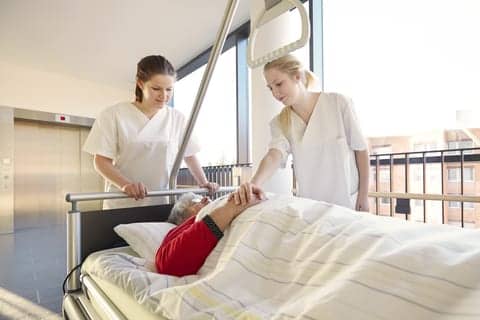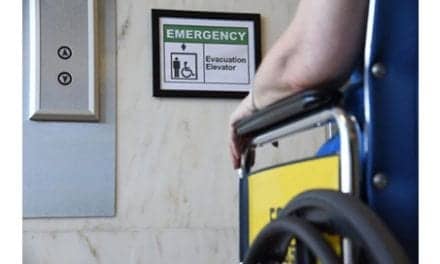The expenses associated with hospital-acquired pressure sores may be dramatically reduced as a result of a new sensor that patients can wear. Findings from a Veterans Affairs (VA) quality improvement project found that use of the device, manufactured by Pleasanton, Calif-headquartered Leaf Healthcare, boosted compliance with hospital turn protocols to 89%. These same compliance marks range from 15% to 66% among hospitals nationwide, according to a media release from Leaf Healthcare.
That same VA project determined the sensors allow nurses to easily know when a patient turn is needed, and also allows them to track the amount of tissue decompression time each patient experiences. This information helps caregivers know when additional intervention is required.
“We had not anticipated the technology to be so sophisticated that it can track tissue decompression for individual patients and warn caregivers when they must intervene by repositioning those who are at risk or who return to a compressive position,” says Margaret Doucette, MD, chief of physical medicine and rehabilitation and director for wound care at Boise VAMC. Doucette made the remarks at the recent Idaho Pressure Ulcer Prevention Coalition Consensus Meeting in Boise, Idaho.
Doucette points out that prior to using the wearable Leaf sensor hospital policy required all patients in at-risk units to be turned no matter what their risk factors for pressure ulcers.
“Leaf tracking reduces the resource burden required for patient turning by roughly 80% without compromising care or pressure ulcer prevention efforts. That ensures we provide the highest-quality care, while allowing us to contain costs,” Doucette says.
The hospital plans to use the sensors moving forward and will include the system’s metrics in the centers monthly nursing quality criteria. The medical center’s turn protocols also will be rewritten to include use of the new sensors, according to Doucette.
Details of the report appeared in the “Drive to Zero” presentation Doucette made at the Pressure Ulcer Prevention Coalition Consensus Meeting.
[Source: Leaf Healthcare]






